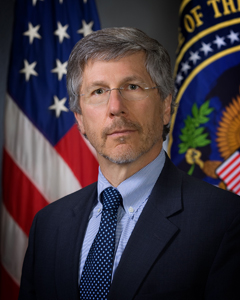Deconstructing McMaster
After yesterday’s briefing by National Security Advisor H.R. McMaster, it is clear that the Washington Post article about President Trump’s disclosure of classified information to Russian officials was accurate in all material factual respects. In fact, McMaster doggedly reiterated only that the “premise of that article” that “the President had a conversation that was inappropriate” was false. I’ll return later to the issue of appropriateness, but McMaster’s other statements are worth a close look:
Published by The Lawfare Institute
in Cooperation With

After yesterday’s briefing by National Security Advisor H.R. McMaster, it is clear that the Washington Post article about President Trump’s disclosure of classified information to Russian officials was accurate in all material factual respects. In fact, McMaster doggedly reiterated only that the “premise of that article” that “the President had a conversation that was inappropriate” was false. I’ll return later to the issue of appropriateness, but McMaster’s other statements are worth a close look:
-
He ducked the opportunity to deny that the President disclosed classified information provided by a third country. Indeed, McMaster’s statement at the end of the briefing that “the president wasn’t even aware . . . where this information came from” can be read as an implicit confirmation of that fact.
-
By stating that the cities controlled by the Islamic State are publicly known, he also implicitly acknowledged that the President specifically disclosed the city from which the information came, a fact that the Post identified as particularly sensitive.
-
By (correctly) emphasizing the damaging nature of the information leaked to the Post, McMaster confirmed the sensitive nature of the information disclosed to the Russians.
-
He further acknowledged that the White House Homeland Security Advisor was sufficiently concerned about the disclosure to tell the heads of the CIA and NSA about it.
-
Finally, McMaster appears to have admitted that the President decided to disclose this information on his own, on the spur of the moment, without any of the interagency review that would normally occur before release of classified information.
In short, McMaster did not dispute any of the facts laid out in the Post article. What he did dispute was that the President’s disclosure was “inappropriate.” According to McMaster, the President shared “information about what the threat was as a basis for common action” against the Islamic State. As many have noted, the Russians have been at best unreliable allies against the Islamic State; their primary goal is to protect their client Bashar Assad.
But based on the Post’s story, the President went beyond disclosing information “about what the threat was.” Surely McMaster cannot believe that, even if it is lawful for him to do so, it is “appropriate” for the President to disclose classified information without consulting with the agencies that produced the information, and without even understanding the nature of the information, or for the President to disclose intelligence information obtained from a friendly nation upon promises of confidentiality. That’s the nature of the problem here, and it’s an issue McMaster did not address.





